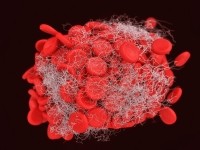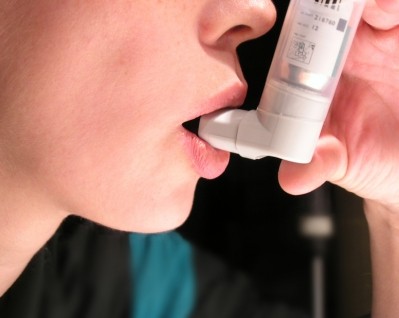Nutrient-rich tomato extract effective in combination against heart disease: Study

The study commissioned by Lycored also noted beneficial changes in glucose, insulin and triglyceride responses after a high-fat meal.
While the study doesn’t reveal anything unexpected, the approach is of notable interest as the researchers use whole food extracts.
Previous research suggested lycopene alone was not as effective as whole tomatoes or complex tomato extracts in improving cardiovascular risk factors associated with oxidative stress.
“The use of a whole food extract from the tomato as a method of addressing the oxidation of LDL, the most dangerous form of cholesterol, and improving the metabolic picture following a meal, is a new concept," said Dr Karin Hermoni, category manager at Lycored.
Tomato study

In a randomised, double-blind, placebo-controlled, 146 healthy normal weight individuals were assigned to a daily dose of Lycored's Cardiomato product or a placebo for two weeks.
The treatment capsules were standardised for the levels of several phytonutrients such as lycopene and phytosterols in a 1:1 ratio (15 mg), as well as tocopherols and other tomato carotenoids such as phytoene, phytofluene (4 mg), and beta-carotene (0.5 mg).
Oxidised LDL (OxLDL) – particles that accumulate in the body leading to artery cell wall thickening or atherosclerosis –glucose, insulin, and triglyceride (TG) responses were measured for eight hours after ingestion of a high-fat meal (850 kcal; 50% of energy from fat; standardised in lycopene) before and at the end of intervention.
The trial, carried out by researchers from French contract research outfit Naturalpha, found that CRTE intake significantly improved the OxLDL response to the high-fat meal in comparison to the placebo group after two weeks.
Changes seen in glucose, insulin and TG responses were not statistically significant after the study period although the researchers thought in combination they may "constitute an additive favourable effect of CRTE on metabolic outcomes after a high-fat meal".
“The outcomes of the study in general tell us the benefits of this whole food supplement in management of post meal stress," said Hermoni.
“One of the strengths of this study is that it was done with healthy subjects. That means everyone can benefit even young healthy individuals that want to promote healthy ageing in the years to come. This trend of a beneficial effect might be even stronger over time."
Previous research has suggested a beneficial relationship between tomato consumption and lycopene levels with risk of some chronic cardiovascular diseases.
Lycopene is thought to be the prime bioactive carotenoid in tomatoes that is responsible for these health benefits. However, other precursor carotenoids such as phytoene and phytofluene are also present in substantial quantities and more than likely exhibit potent bioactivity too.
Cardiomato in Europe
The EU considers the reduction of plasma OxLDL levels advantageous for atherosclerosis prevention.
“Maintenance of normal LDL-cholesterol concentrations is a beneficial physiological effect,” stated the European Food Safety Authority (EFSA) in its Guidance on scientific requirements for health claims related to antioxidants, oxidative damage and cardiovascular health.
“Substantiation of health claims on the maintenance of normal blood cholesterol concentrations can be obtained from studies showing a sustained reduction of fasting LDL-cholesterol concentrations in humans following the consumption of the food/constituent.”
Despite the results of this study and others, Lycored said it would focus on consumer and practitioner education and product development, instead of pursuing an EU health claim for Cardiomato.
In a recent interview with NutraIngredients, Golan Raz, senior vice president of Lycored's health and nutrition division, said the original plan was to work towards a health claim.
“We’ve learned from companies larger than Lycored that have failed that it’s too much bureaucracy and very little product innovation. So strategically at this point we have decided not to go for a claim,” said Raz.
“By taking this decision, we’ve focused all of our energy and resources into the product itself, instead of doing regulatory applications. At the end of the day, people aren’t interested in claims – they’re interested in user experience. They want a good product.”
Source: Food and Nutrition Research
Published online ahead of print, doi.org/10.3402/fnr.v60.32537
“Proprietary Tomato Extract Improves Metabolic Response to High-Fat Meal in Healthy Normal Weight Subjects.”
Authors: Eric Chappuis et al.
















